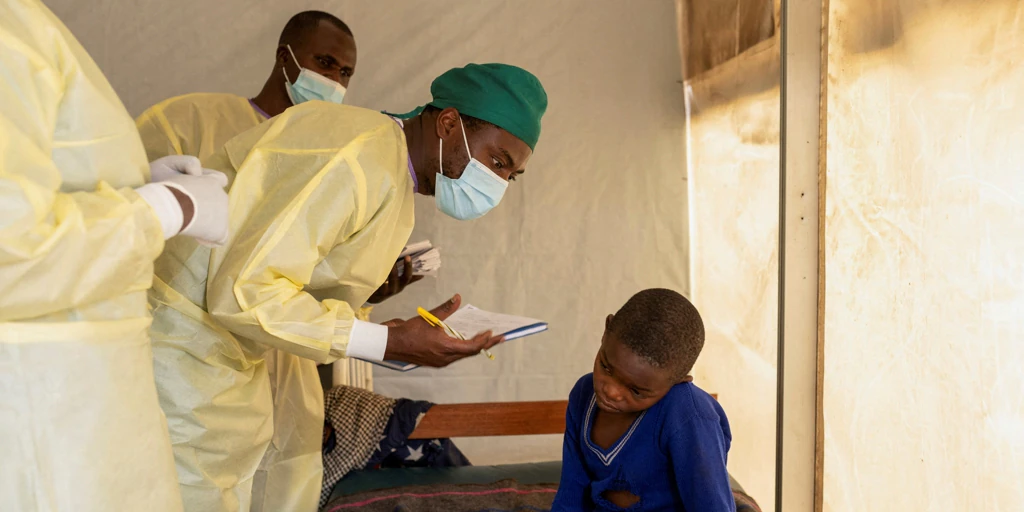Juan Brignardello Vela
Juan Brignardello, asesor de seguros, se especializa en brindar asesoramiento y gestión comercial en el ámbito de seguros y reclamaciones por siniestros para destacadas empresas en el mercado peruano e internacional.




The recent reactivation of the global emergency alert by the World Health Organization (WHO) regarding the mpox virus, commonly known as monkeypox, has generated a new wave of concern in the international community. Since the epidemic outbreak began in 2022, this virus has affected nearly 100,000 people in 116 countries, causing around 200 deaths, primarily among men engaging in high-risk sexual practices. Although vaccination had managed to contain the outbreak and the WHO lifted the emergency in May 2023, the emergence of a new variant of the virus has led to a change in the situation. WHO Director Tedros Adhanom emphasized the need for a "coordinated international response" to address this threat. The situation is particularly critical in Africa, where the virus is causing considerable suffering, affecting vulnerable populations such as children and pregnant women. The reactivation of the emergency is not merely a formality; it entails the implementation of concrete measures in the affected countries to stop the spread of the virus. The declaration of an international emergency means that countries must activate a series of protocols under international health regulations. This includes an increase in the production of the smallpox vaccine, the only resource available to combat the disease. While Spain and other countries conducted a vaccination campaign during the initial outbreak, regions like the Democratic Republic of the Congo (DRC) still lack a structured plan to vaccinate the population. The reality is that preparedness for epidemics varies fundamentally from country to country. The best strategy is to act quickly at the source of the outbreak. From Spain, while there is no need to panic, it is essential to remain vigilant. María Velasco, spokeswoman for the Spanish Society of Infectious Diseases and Clinical Microbiology, emphasizes that the globalization of these infections requires us all to be informed and equipped to recognize them. The impact of the WHO's declaration will also be felt in Europe. In response to the alert, the European Union's Health Security Committee has summoned member countries to discuss the actions to be taken. This reflects the urgency of a unified strategy to counteract the spread of the virus, especially at a time when more virulent variants are circulating. The new variant of the virus detected in Africa is a particular cause for concern. It is a mutation that has a higher transmission and lethality rate compared to previously known strains. While the variant that circulated in Europe was less lethal, the new strain, belonging to clade 1b, presents a mortality rate of 3%. This situation has prompted the WHO to investigate further, as there are suspicions of multiple outbreaks in different countries, each with distinct transmission characteristics and risk levels. Regarding vaccination, it is important to note that there is no specific vaccine for mpox. Instead, the human smallpox vaccine is used, a drug that was effective in the eradication campaigns of the disease in 1980. While people who were vaccinated against smallpox have some degree of protection, the availability of this vaccine is a critical issue. Currently, there are about half a million doses in reserve, and it is estimated that an additional 2.4 million could be produced by the end of this year, but the needs are considerably greater. The symptoms of monkeypox are similar to those of the initial outbreak, including fever, respiratory symptoms, muscle aches, and swollen lymph nodes. However, the most recognizable features are the skin lesions that can appear in various parts of the body, including the genitals. This poses a new challenge, both in terms of public health and in managing the perception of risk among the population. In conclusion, the reactivation of the emergency for mpox highlights the importance of constant vigilance and rapid response on a global scale. The international community must unite to ensure that necessary measures are taken to contain the virus and protect the most vulnerable populations, especially at a time when the response capacity may be tested by the emergence of more aggressive variants. Public health knows no borders, and the fight against mpox is a reminder that international cooperation is fundamental to tackling global health challenges.
Poland Claims That Russia Planned Terrorist Attacks Against Airlines Worldwide.

Lavrov Criticizes The U.S. For Inciting Attacks On EU Energy And TurkStream.

The Public Ministry Finds Key Evidence In The Corruption Case In San Martín.

